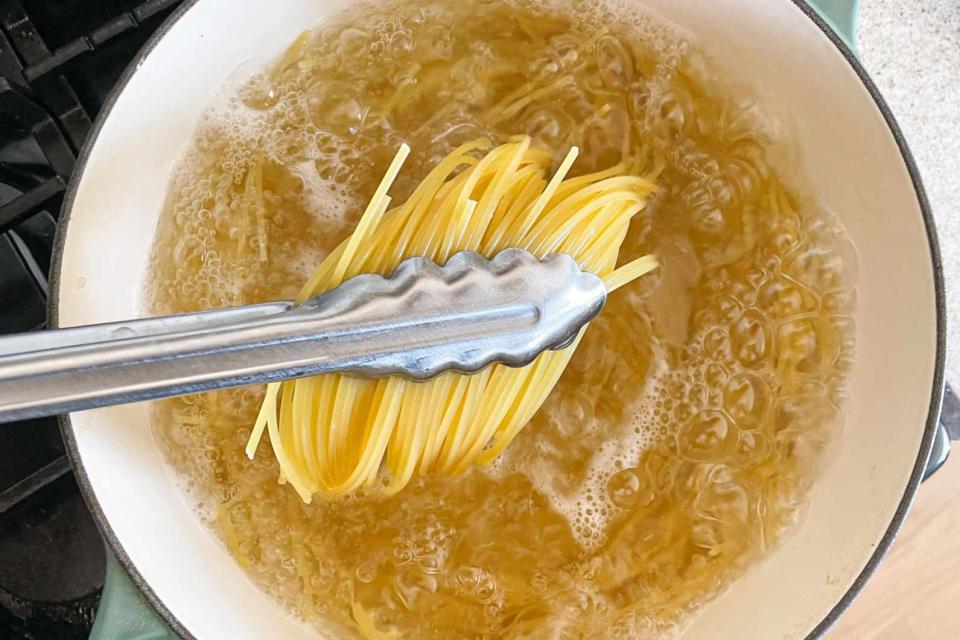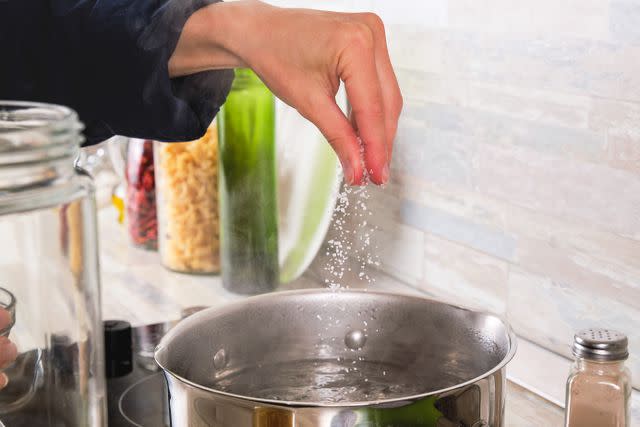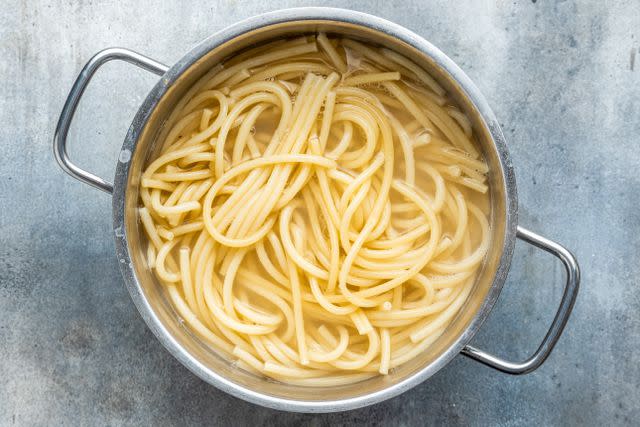This Is When You Salt Pasta Water, According to Barilla
It turns out that timing matters.

Simply Recipes / Sarah Tane
My favorite weeknight meal? Pasta, hands down. Being Italian, I grew up in a ravioli-obsessed, lasagna-making family, but I know I’m not alone in my adoration for a cheesy, saucy bowl of noodles. It’s not just that spaghetti, rigatoni, and cavatelli taste so good or are so versatile. I also love pasta for dinner because it’s quick and easy to prepare.
While my nonna taught me a bunch of traditional cooking techniques—all of them involving measuring ingredients with the palm of her hand instead of a measuring spoon—there was one key element in the pasta-preparing process that I felt I needed a little more insight into: when and how to salt the water.
My grandma showed me just how much salt to add to the pot by filling up her cupped hand with kosher salt and tossing it in, but I had a bunch of more concrete questions. I wanted to know when to add it to the pot and exactly how much I should be adding. So I chatted with Chef Lorenzo Boni, the Executive Chef at Barilla, for some clear-cut answers.
When Is the Best Time to Salt Pasta Water?
“The best time to salt the water is right when it comes to a boil,” says Chef Boni, “just before pouring in the pasta.” If you add salt too soon, it will slow down the boiling process.
Another thing to consider is that “if you let water boil with salt in it for too long before cooking the pasta, it creates a high concentration of sodium, giving you a very salty dish.” Duly noted! I sometimes add salt to the pot and turn it on to save time while I do chores around the house—no longer.

Simply Recipes / Getty Images
How Much Salt Should You Add to Pasta Water?
When putting a pot of water on for pasta, I’ve always wondered, doesn’t the amount of water affect how much salt I should add? If the ratio of salt to water is important, this should be a key factor for perfectly salted pasta, right? Right, says Chef Boni: “The correct ratio is one gallon of water to four teaspoons of salt.”
When it comes to how much water is needed for a batch of pasta, the chef says to check the box. “I always recommend plenty of water to start. Typically one gallon of water for one package of pasta is the recommended ratio. Always use high heat and hard boiling.”
While the chef told me that the shape and size of the pasta cut does not impact how much salt you should add to the water, “what is a factor” he says, “is the different types of sauce; some naturally have more salt. So with those, it’s recommended to use less salt in the water (think: cacio e pepe or spaghetti with shellfish).”
Why Is Adding Salt to Pasta Water Important?
Because salting pasta water turned out to be a bit more precise than I thought it would be, I had to ask just how essential it is to perfect pasta. Turns out it is very essential. “Salt is a crucial element to achieve a perfect al dente texture,” says Chef Boni. “Without it, you’ll never reach that perfect bite and mouthfeel.”
Another reason to salt the pot? Adding salt will keep your pasta from sticking and enhances the subtle flavors of the noodles.

Simply Recipes / Mihaela Kozaric Sebrek
Read the original article on Simply Recipes.

